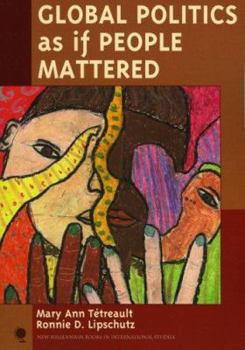Global Politics as If People Mattered
How might we see the world affairs if we started with people, families, and communities instead of presidents, governments, and militaries? After all, it is people who make up cities, states, and corporations, and it is their beliefs and behaviors that explain why some parts of the world seem so peaceful while others appear so violent.
Format:Paperback
Language:English
ISBN:0742510905
ISBN13:9780742510906
Release Date:February 2005
Publisher:Rowman & Littlefield Publishers
Length:234 Pages
Weight:0.95 lbs.
Dimensions:0.5" x 7.2" x 10.0"
Customer Reviews
1 rating
it's not all about feminism
Published by Thriftbooks.com User , 15 years ago
I really must differ with the other reviewer who claimed that the book is 'all about feminism'. (What book was he reading?) Many themes are threaded through the book. Feminism is indeed one of these, but scarcely the dominant chord. Instead, the narrative is a sweeping look at the modern world. Giving a discourse [somewhat quickly maybe] on the rise of the nation state. The focus is on current global affairs, emphasising the roles that individuals can play in a nation. Here the book is distinct from many texts on international relations that talk about sweeping trends and movements, and which mention individuals often only in the context of naming leaders. It does look at what it calls individualism, as expressed in the free market capitalist belief ideology which motivates or "inspires" the global economy. This is decried as leading to excesses of speculation and recession. In a contemporaneous note, we are currently in 2009, in a world recession. The authors' remarks might well be agreeable to many readers, American or otherwise.






